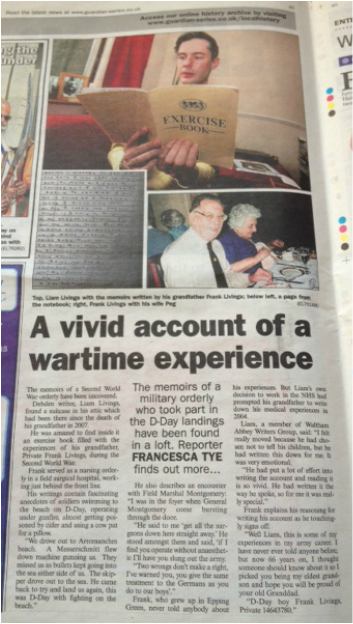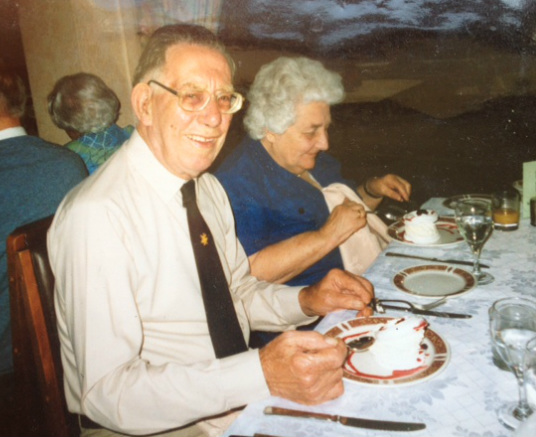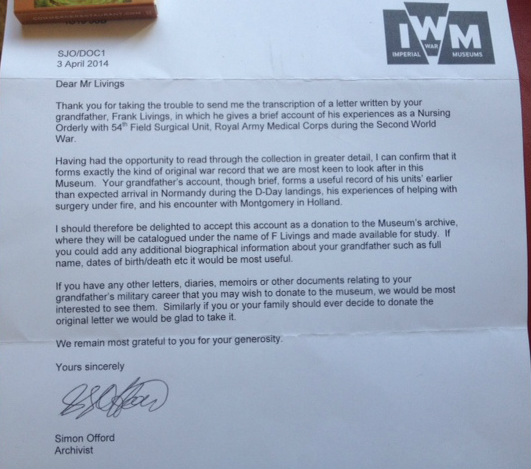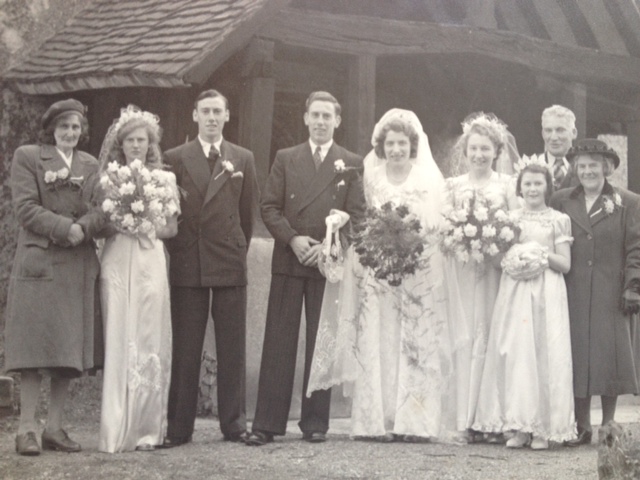Among the photos I found a yellow exercise book, in which he’d written his account of working as an auxiliary nurse in a field surgical hospital, working just behind the frontline. Mum explained that he didn’t tell any of his family about what he’d done in the war. The only account of that was in the yellow exercise book he’d written to me.
Nowadays we call an auxiliary nurse, a health care assistant, and Mum explained that my grandfather worked as an auxiliary after the war, but because he wasn’t allowed to do nearly as much as he’d done during the war – operations, dressings etc – he stopped that work and got other jobs instead.
I wasn’t too sure what to do with this, 2200 word account, so at first I typed it up, keeping the phrases and words he’d used, and only breaking it up into paragraphs and sections to help reading it later. I wanted to retain his voice, and as I typed it, I could hear him saying it, which was moving. What was even more impressive, is that he wasn't really one for writing, so for him to have filled an exercise book would have been a major under-taking for him.
I contacted Charlie Cochrane and Jean Fullerton as they write historical novels, and asked for suggestions about what I could do with this memoir.
The Guardian wrote a story about it – The Epping Forest Guardian, but I wanted to do a Margot Leadbetter from The Good Life for a moment ;-)
My typed version of his memoir has been accepted by the Imperial War Museum and I’m still finding out some more information about what my grandfather and his brothers did during World War Two.
It's been an emotional journey but I'm glad I've been on it, and that I've done something positive with my grandfather's memoirs.
I really hope my grandfather is pleased I picked his surname as part of my pen name.
Until next time,
Liam Livings xx




 RSS Feed
RSS Feed
